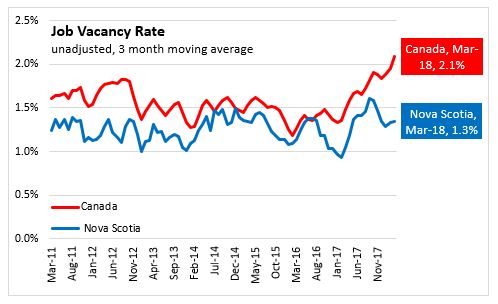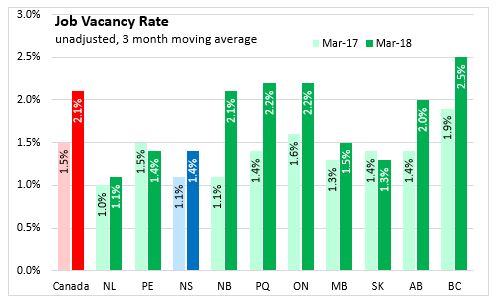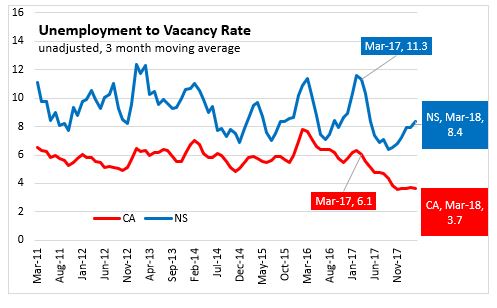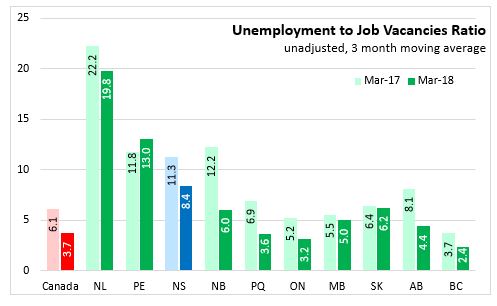The Economics and Statistics Division maintains archives of previous publications for accountability purposes, but makes no updates to keep these documents current with the latest data revisions from Statistics Canada. As a result, information in older documents may not be accurate. Please exercise caution when referring to older documents. For the latest information and historical data, please contact the individual listed to the right.
<--- Return to Archive
For additional information relating to this article, please contact:
June 28, 2018JOB VACANCIES, MARCH 2018 In the 3 months ending in March 2018, there was an average of 5,100 job vacancies in Nova Scotia (unadjusted for seasonality). This is 1,200 higher than reported in the same month of 2017.


Nova Scotia's job vacancy rate, the share of labour demand that is unfilled, was 1.4 per cent in March. After rising somewhat through 2017, the job vacancy rate peaked at 1.6 per cent in September and October 2017 and has been declining since, signaling some slack in the labour market. As the data are not adjusted for seasonality, some of this slack in the labour market may be a seasonal phenomenon. A similar downward trend was seen for the same period in 2016 and 2015.
Across Canada, job vacancy rates are highest in British Columbia (2.5 per cent), and lowest in Newfoundland and Labrador (1.1 per cent). Vacancy rates are up compared with the same month of 2017 in all provinces except Prince Edward Island and Saskatchewan.

There were an average of 8.4 unemployed persons per job vacancy in Nova Scotia in the 3 months ending in March, up from 8.0 in the three months leading up to February.
After declining through 2017, the ratio of unemployment-to-job-vacancy has been increasing in recent months, signalling slack in Nova Scotia's labour market. However, this also appears to be an emerging seasonal trend as the ratio is similar to levels reported at the end of 2016.

All provinces except Prince Edward Island report fewer unemployed persons per job vacancy in March 2018 compared with the same month last year. British Columbia currently reports the tightest labour market conditions in Canada, with a job vacancy rate of 2.5 per cent and just 2.4 unemployed persons for each job vacancy. Newfoundland and Labrador reported the labour market conditions signaling the most slack, with 19.8 unemployed persons for each job vacancy.

Source: Statistics Canada's Job Vacancies. CANSIM 14-10-0224-01 (formerly 284-0001), and 14-10-0226-01 (formerly 284-0003)
<--- Return to Archive